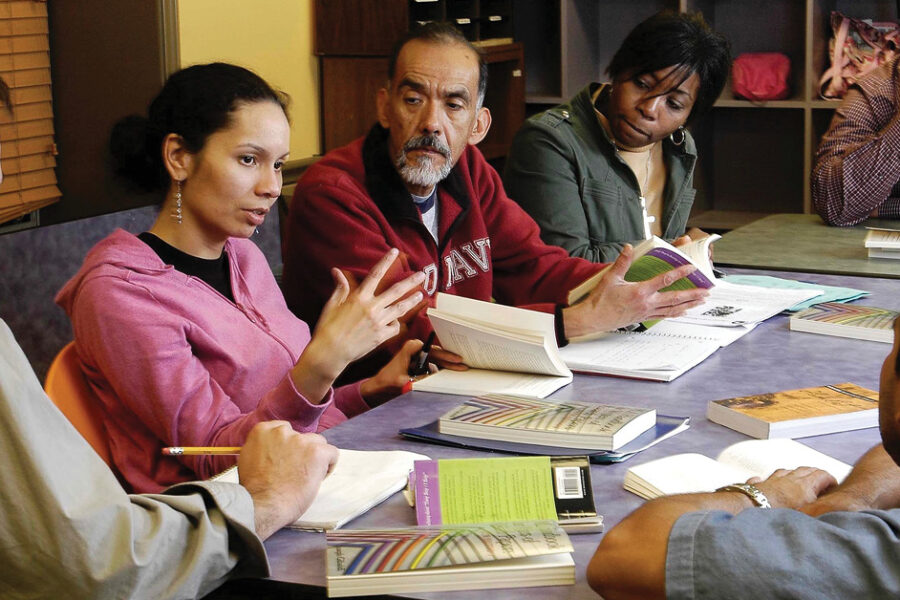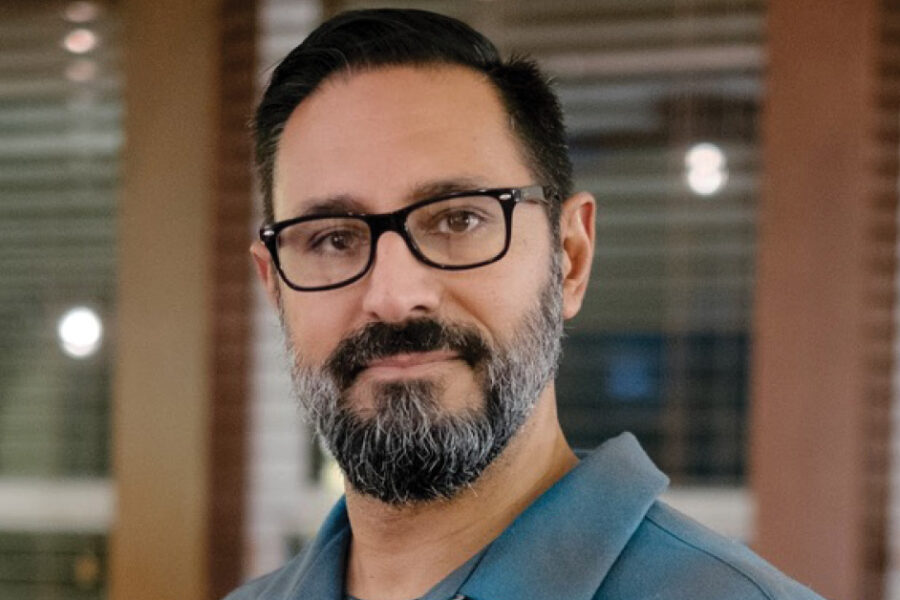The PhD in Counselor Education at Antioch Seattle has for the last six years served professional mental health counselors who desire either to train other counselors or move into leadership positions in the field. However, for many would-be students who share these goals, starting graduate school and balancing an established career can pose serious logistical challenges. With this in mind, the program recently pivoted to an online, low-residency model. This model will serve counseling students all over the country and even internationally, at both the MA and PhD levels. Biannual residency weeks will be held in Seattle and Santa Barbara, but for the remainder of the year, students will be free to study from their homes. By offering this degree to counselors across the country and world, Antioch University hopes to help address the shortage of mental health professionals.
The program’s model was originally designed to have a year-round cohort of people studying in the Seattle region. It evolved into a low-residency format just before the pandemic, which gave it a head start when other schools were trying to adjust to remote learning. Candidates are trained as Counselor Educators and Supervisors, and they also learn how to be good researchers, to be advocates, and—with the program’s unique emphasis—to be social justice leaders. The program aims to create bridges for better understanding across diverse populations and to reduce barriers in access for learners across the country with its new low-residency model.
A Program That Centers Learners and Creates Community
The program’s chair, Colin Ward, explains the importance of the program by making reference to Martin Luther King, Jr.’s idea of the beloved community. As he says, “In the beloved communities in which we are trying to make differences, our role is not just to talk the talk; we need to walk the walk.”
The program centers learners by listening. This approach, which puts a premium on engagement and collaboration, has led to more relevant and diverse perspectives in counseling. Working side by side with students, the program strives to make sure that each voice is heard, especially when it comes to their experience of learning. This has nurtured connections that help the program meet student needs while also helping students practice advocacy skills to support the communities they’ll work in.
Ward himself has taught in higher education for over twenty-five years, and he has been a part of the Antioch community since 2009. He stays because he wants to be part of an institution guided by progressive educational ideals. The PhD in Counselor Education and Supervision is an example of these ideals: it supports growth in the field while also supporting the growth of people.
The program requires students’ commitment not just to their professional growth but also to growing personally. Being open to grow and to be engaged with others in a way that holds space for their experiences can be challenging but can also be deeply rewarding, says Ward. “Our hope is that this program transforms students into a place of greater confidence, greater sense of scope of practice. And more importantly, that as they push themselves forward, they’ll do the very same for the profession.”
The program allows students and faculty to live out Antioch’s social justice mission by providing access to programs that many may not have otherwise been able to join. Katherine Fort is a Co-Director of the program, along with Ward and Mariaimeé Gonzalez. She says that “working parents, for example, cannot always uproot and move to an expensive city, such as Seattle, to take on the financial and commuting demands of graduate school.” In the end, the low-residency model not only improves access to higher education, it also significantly enriches classroom discourse and learning communities.
A Necessity for California
Bringing this program to have a physical presence in the state of California is vital because the state is facing a shortage of mental health professionals. This is particularly acute for counselors. Says Ward, “There is a shortage in Counselor Educators in California, particularly with the state’s fairly new licensure laws.” Many people may have heard about the shortage of direct care providers, but Ward explains that “There is a need for not only quality trained counselors but also counselor educators with supervisory aspects.” New programs are being launched to train counselors to meet the state’s need, but those programs need qualified people to teach in them. The PhD in Counselor Education and Supervision provides a chance for residents who are experienced clinicians to obtain a doctorate degree, so they can stay in California and teach in these emerging graduate programs.
“California is beginning to increase their recognition of professional counselors, and we wanted to be part of that trend as a training institution,” says Ward.
Hopes for a Return to In-Person Residencies
The program’s two annual residencies will take place alternating between Seattle in the summer and Santa Barbara in the winter. These four-day face-to-face intensives are where students get to share and discuss material with each other while diving into advanced inquiry. This kind of study helps support the ability to hold multiple points of view by bringing learners together for challenging conversations. Such conversations are a necessity when exploring the complexity of this specific field. Curiosity and humility are admired skills among Counselor Educators, and these intensives offer students the chance to cultivate both in a supportive environment.
The expansion of the residency to Santa Barbara was scheduled to begin in 2021, however, due to the continuing pandemic, the launch had to be postponed. Despite the changes in schedule, no students have left the program, and now in-person residencies will resume. The program will resume the in-person Seattle residency this July, and the Santa Barbara residency will resume in Winter 2023. “We’ve done the best we can to balance the value of our kind of instruction while also trying to keep folks safe,” says Ward. “I can’t wait to get back together in person.”
Perspectives Beyond Location
While the program is based in Seattle and California, students in the PhD cohort hail from a variety of locations, including the Midwest, the East Coast, and abroad. These learners bring unique perspectives and engage different communities with their work. The program tries to follow their diversity. “We hope to bring in regional speakers with regional experiences that assist us with better understanding our role not just as Counselor Educators, but as advocates of social change,” says Ward.
The program hopes this widening of understanding will increase students’ willingness to address some of the gaps that are often seen in marginalized communities, which includes limited mental health outreach. With students spread out across the country, these perspectives will be applied to both locations of the residency, and, ultimately, beyond those locations, as students graduate and return to work in the places they call home. Ward says, “It’s about seeing ourselves as agents that try to go upstream as much as we can to make a difference.”




